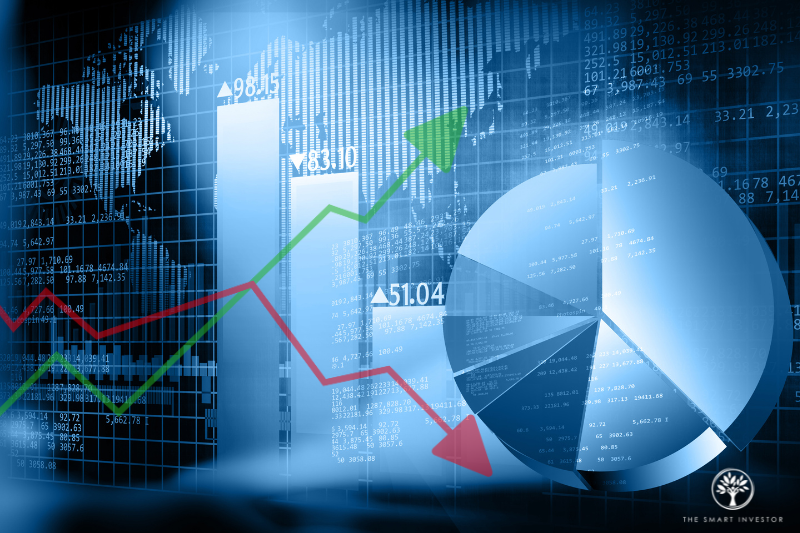Donald Trump has already sowed chaos and mayhem around the world, even before he has been sworn in as the US’ next president.
Many economies are frantically trying to deal with the potential fallout from America’s threat to impose import tariffs. They have enough domestic problems to deal with.
The last thing they need is a US leader who makes uninformed decisions on the fly.
In Canada, the finance minister has resigned ahead of delivering a fiscal update, known as the Fall Economic Statement. Chrystia Freeland said that Canada faces a grave challenge and characterised Trump’s import tariffs as “aggressive economic nationalism”.
She added that Canada needs to protect its reserves for a coming tariff war.
In Germany, Chancellor Olaf Scholz has lost a vote of no confidence that has paved the way for a snap election. He has had a running dispute with his finance minister over how to revive the ailing German economy and there is a risk that the far-right Alternative for Germany party could become a key powerbroker in the German parliament.
In France, then prime-minister Michel Barnier lost a no-confidence vote. It merely highlights the political instability plaguing Europe’s two main powerhouses.
Domestic issues
But protest voting has been in evidence around the world throughout 2024. A snap election in Japan that was called by Prime Minister Shigeru Ishiba has left the government in political limbo.
In India, Prime Minister Narendra Modi’s Bharatiya Janata Party was dealt a devastating blow when it failed to achieve an overall majority. The party was expected to win by a landslide. Instead, it has been forced to rule through a coalition that has been made up of a number of partners.
In the United Kingdom, the opposition Labour Party surged to a landslide victory after former prime minister Rishi Sunak called a snap election. It ended 14 years of continuous Conservative government and propelled a relatively unknown Kier Starmer to 10 Downing Street.
In South Korea, President Yoon Suk-yeol’s People’s Power Party lost by a landslide to the liberal opposition party, The Democratic Party.
Yoon had said that he would “humbly” accept the will of the people, until he did not. In December, he sparked mass protests after he decided to give the military unlimited authority to make and enforce new laws and suspend all existing legislations.
He was later forced to back down when lawmakers managed to head to parliament to vote against the martial-law ruling, and was subsequently impeached.
Rational by nature
There appears to be a common theme running through the various elections around the world, namely, the disappointing state of the economy.
US former president Bill Clinton famously said: “It is the economy, stupid”.
In other words, everything eventually leads back to the economy. The important question for politicians is which parts of an economy are swing voters most concerned about.
Voters are by nature rational. They care only about the dollar, the pound, the won, the rupee, the yen or the euro in their pockets.
Governments can say what they like about economic growth rates, employment levels, trade surpluses and deficits, the direction of inflation and dot plots on an interest-rate chart.
But voters only care about one thing when they go into the ballot box: Are we better off now compared to the last time we voted?
If the answer is yes, then the incumbent government can expect to enjoy another term in office. If the answer is no, then all the rosy economic projections are unlikely to convince voters that they deserve to stay in power.
In America, Trump won the US election on a populist agenda. Persistent inflation or the inability to bring down the prices of everyday goods and services was probably a deciding factor.
It can be hard for a voter to overlook an inflation rate of 20 per cent during President Joe Biden’s term. It was not his fault. In fact, it was not his fault at all.
Problem is that a slowdown in the rate of inflation is not the same as a retreat or reversal in consumer prices. It simply means that prices are not rising as quickly. So, the price of things we buy regularly are appreciably higher now than at the time of the last election – and they are continuing to go up.
The disruption in global politics and a leaning towards mercantilism could destabilise global trade. Higher inflation as a result of Trump’s tariffs could result in higher-for-longer interest rates.
The upshot is that stock market could be volatile as traders react to every phrase, every word and every syllable uttered by The White House.
Cash is king
But stock-market volatility is only a problem if we do not know what we are invested in. Consequently, income investors should stay focused on cash flow. If we can do that, then we should not go too far wrong.
Let’s not forget that America is a population of 335 million people. There are still 7.6 billion people that producers and manufacturers can sell to if America should decide to go down the path of mercantilism and impose penal tariffs on imports. Ironically, it is not producers who could lose out, but American households.
Cash is king in times of volatility. So, we could focus on a portfolio of companies that have a high return on equity and are able to retain enough profit to grow their dividends. Volatility rather than unsettling could even provide us with just the opportunity to buy shares at attractive valuations.
There is nothing more comforting than the sound of dividends hitting our bank accounts in times of volatility.
Actually, there is, and that is the sound of rising dividends hitting our bank accounts.
Many investors think DeepSeek lowering AI costs means less revenue for tech companies. But that’s not the full story, and believing it could cost you. In our latest free report, we unpack a surprising insight from a top tech CEO who explains why lower AI costs may actually drive more tech spending, not less — and he’s got the numbers to prove it. If you’ve misunderstood this trend, you could miss out on some of the biggest investment opportunities. Click here now to access “How GenAI is Reshaping the Stock Market” today to get the full breakdown.
Follow us on Facebook and Telegram for the latest investing news and analyses!
An earlier version of this article appeared in The Business Times.
Disclosure: David Kuo does not own shares in any of the companies mentioned.





